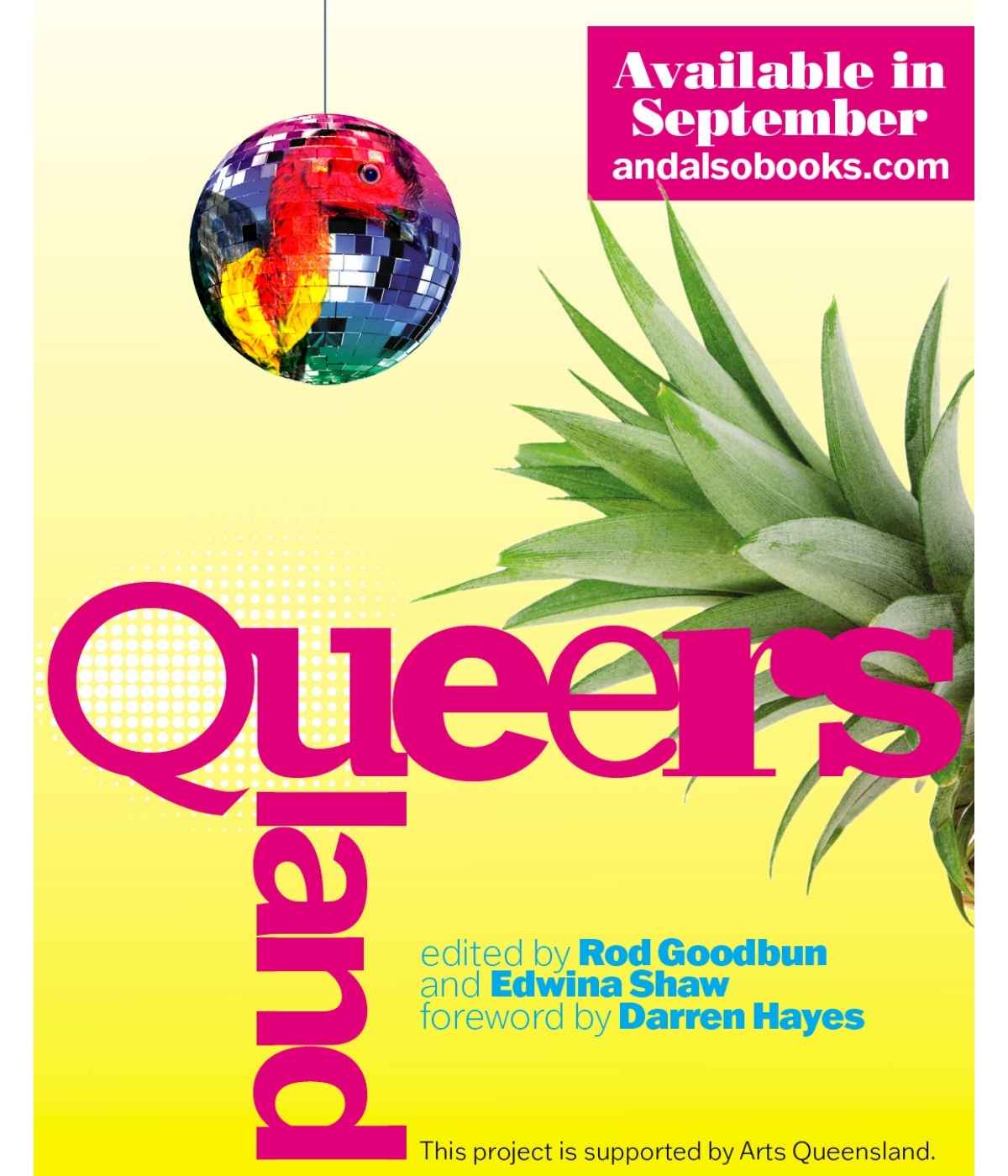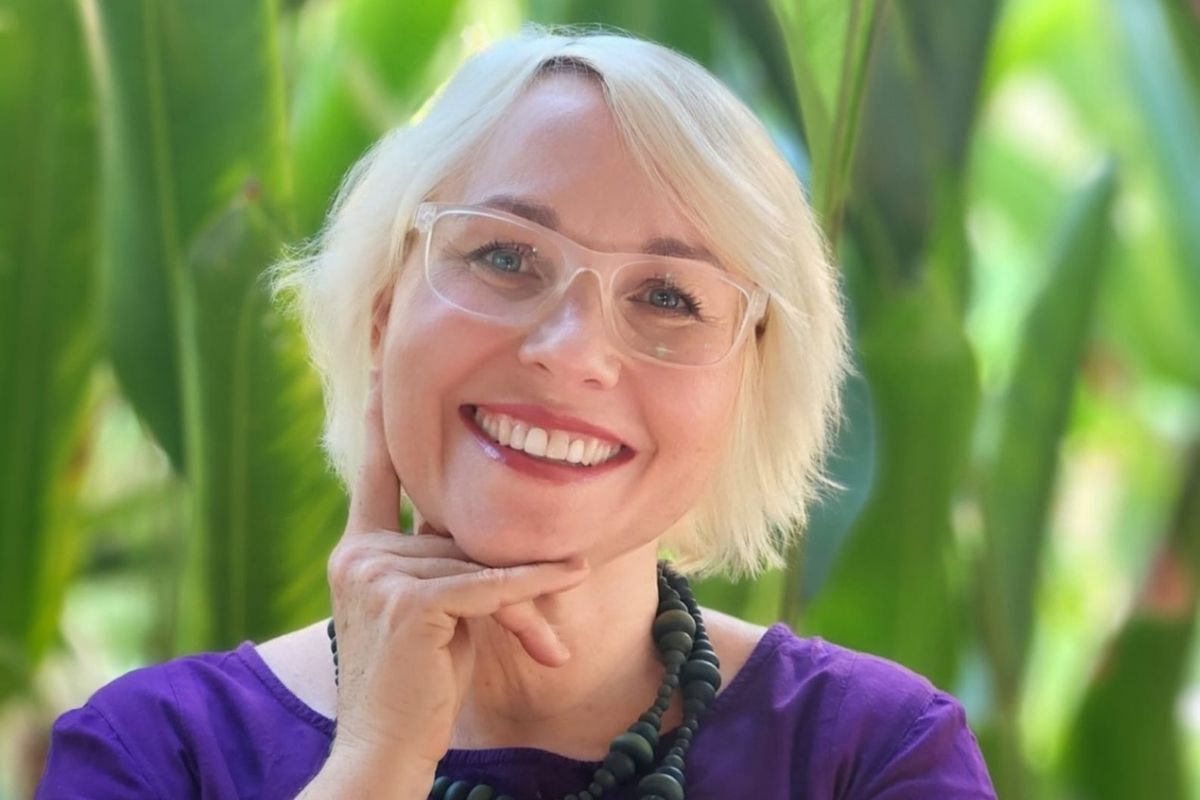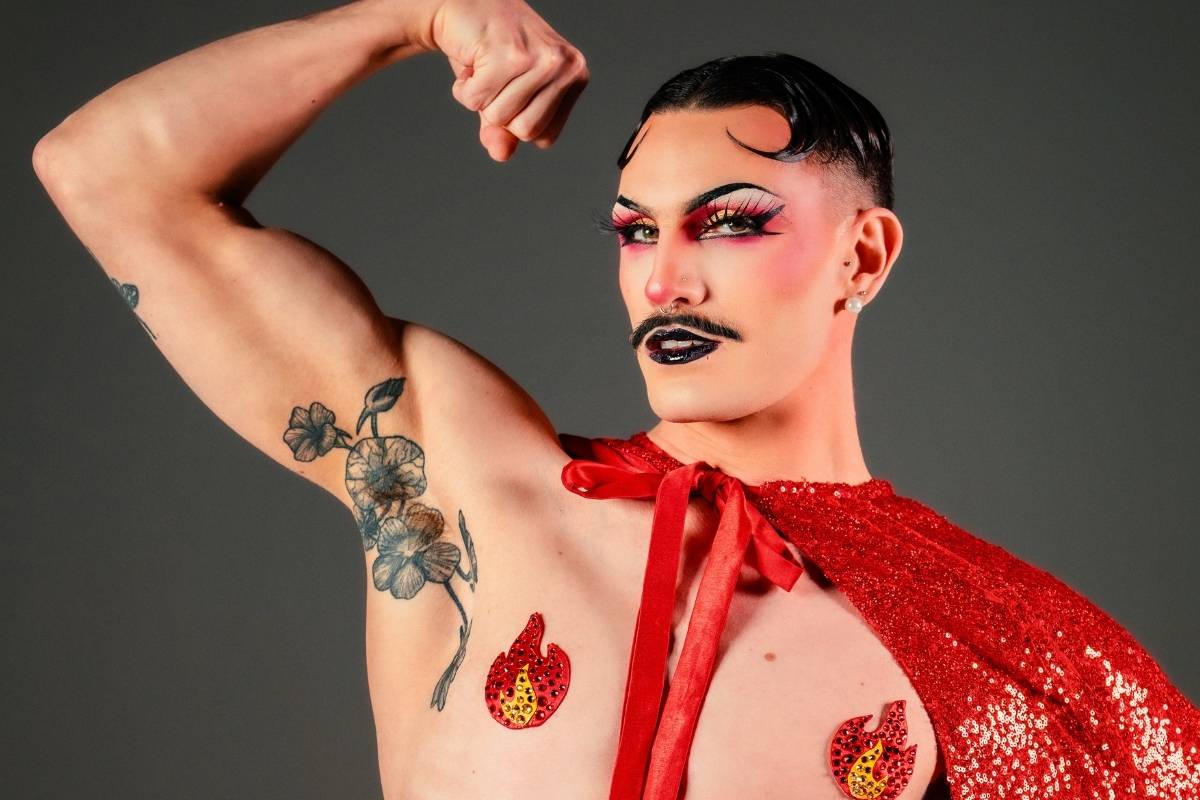Edited by Rod Goodbun and Edwina Shaw, the book contains representations of the early times, when coming out meant risking your life, to fleeing the persecutions of a harsh police state in search of a better life. There are stories of discomfort, disconnection and despair. . . And creation, collaboration, love, commitment and chosen families.
The book, supported by the Queensland Government through Arts Queensland, combines fiction, memoir, poetry and imagery, calling for a more compassionate and generous way of being in our world.
Here, we speak to 'Queersland' Co-Editor Edwina Shaw about the book, out in early September.
For those just hearing about it – what is 'Queersland', and what makes it such a special collection of stories?
'Queersland' is an anthology of stories from queer Queenslanders spanning over 80 years, from WW2 to the future. We have pieces from established queer writers like Kris Kneen, Michelle Dicinoski, David Kelly and Steve MinOn to stories from young exciting queer writers on the way up and stories from people who’ve never written before but who played important roles in the recent queer history of Queensland.
You’ve described 'Queersland' as your “ultimate revenge on Joh Bjelke-Petersen”. Can you tell us more about what you meant by that?
My previous anthology 'Bjelke Blues' (AndAlso Books 2019) was a collection of stories from the people of the wrong side of Joh during the Bjelke-Petersen regime. Queer people were one of these targeted groups and the police often brutalised (and even murdered) LGBTQIA+ folk. When the Taringa CIB raided my student household in 1986 they came in under the Health Act “Do two flamboyant homosexuals live here?” One of the stories in 'Queersland' also points out that police corruption that supported the prostitution and gambling industries in Brisbane also, inadvertently provided safe spaces in queer clubs for young people. The police were paid off so we were all out at gay clubs like The Terminus and The Beat from our mid-teens. No ID cards in those days!
The stories in the book span nearly 80 years – how did you go about choosing what made it in, what stories were told? Was it hard narrowing things down?
That’s the hardest part of choosing stories, letting go those that aren’t needed. As a writer still submitting myself, I know how hard writers work on a piece, so I hate rejecting anything. Some stories were trimmed right down and others we had to go searching for. Luckily as a teacher of writing, I kept meeting just the right writers to fill the gaps!
There’s a real mix of things in the book – fiction, memoir, poetry, images. . . Why was it important to include that variety of storytelling?
We wanted the anthology to be a reflection of queer creativity across many art forms.

What was it like working with such a diverse bunch of queer voices from across Queensland? Any stand-out moments during the editing process?
Some stories needed more editing than others. I really enjoyed working on pieces from new writers helping them find their voices and the hearts of their stories. It was a joy receiving stories from established writers that were ready to go too. We feel particularly lucky to have a story from Aunty Dawn Daylight, a Brisbane institution. This story was created through a friend of Dawn’s doing a few interviews with her, transcribing the results, then me shaping it into the form that’s made the book.
How did 'Queersland' differ from other books you’ve worked on, in terms of the emotional/cultural impact it had on you?
'Queersland' is dear to my heart because it is the voices of the community that I grew up in. As a young wild child in the '80s I found my tribe in queer clubs and to now be able to provide a platform for that community to express their truths, bear witness to those we’ve lost, share the love stories that for too long have been hidden and the despair so many suffered and still suffer today when rejected by family and society, is a great honour.
The book touches on everything from survival to joy to sex to heartbreak – what kinds of reactions are you hoping readers will have?
Like any book, we hope 'Queersland' will make people laugh, cry and change their thinking just a little. Mostly I hope queer folk will enjoy seeing their experiences reflected and honoured and that young people coming out will have an easier time of it because of books like this.
How do you think books like this help challenge outdated ideas of what it means to be queer, especially in places like Queensland?
Well, we have to get the book read in the regions first! Urban Queenslanders are mostly much more accepting these days but in rural and remote areas of Queensland queer kids are still doing it really tough and having to escape, just as we had to escape Queensland in the 80s. Every Queenslander should read 'Queersland', give it to Grandma for Xmas, so they can read our stories and perhaps then understand and have more compassion.
What would teenage-you think of this book? Do you wish something like 'Queersland' had existed when you were growing up?
I’m sure teenage me would have loved a book like this. Not knowing whether I liked Arthur or Martha or that it was okay to like both, or none. We didn’t have the vocabulary or the multiple resources today’s young queers have.
And finally – can you give us a little teaser of one of your favourite pieces or moments from the book? No spoilers, of course!
Here’s a bit from drag queen, Evalyn Eatdith’s piece, “Private Questions”. We put her story first because the stories in Queersland are mostly answers to private questions.
Private Questions by Evalyn Eatdith
“I was walking through the crowd at Come To Daddy in West End, Brisbane in full drag, wearing my stunning mustard-yellow dress, sequins catching the light and shimmering. A corset cinched my waist, adding drama, while chunky mustard jewellery sparkled against my skin. Clear heels, tall and slutty, clicked with power as I walked, making my hair bounce with every step.
Suddenly, a guy stopped me and whispered, ‘Is that real?’
I paused, then said, ‘What? The tooth gap? The body? My charming personality?’
He stared for a second, then nodded seriously. ‘Definitely the personality.’
I smiled, thinking to myself – what a funny bitch.
‘Wow, you look incredible! I detect an accent. Where from?’ he asked.
I quickly replied, ‘My parents.’
He laughed and said, ‘No, no. I mean, where are you from?’
‘Probably the right testicle.’ I smiled and continued walking.
Buy a girl a drink before asking private questions.”
'Queersland' is out on 5 September. A book launch will be held on 5 September at Come To Daddy (Brisbane).






